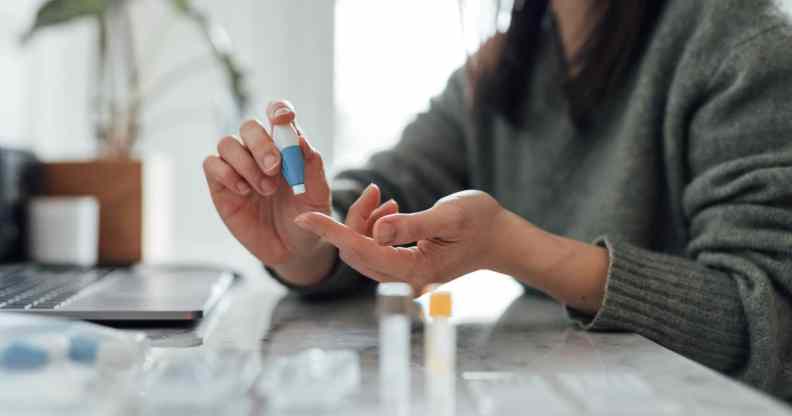Woman ‘cured’ of HIV for first time ever in ‘scientifically important’ breakthrough

First woman ever cured of HIV in ‘important’ breakthrough (Oscar Wong/Getty Images)
A woman appears to have been cured of HIV for the first time ever, in an “important” breakthrough in the fight against the once-deadly virus.
The woman, who is mixed-race, would be the third person ever to be cured of HIV.
Scientists announced on Tuesday (15 February) that the method, which involves a stem cell transplant, could lead to more racially diverse people being cured of the virus in the future, the New York Times reported.
“The fact that she’s mixed-race, and that she’s a woman, that is really important scientifically and really important in terms of the community impact,” Dr Steven Deeks, University of California, San Francisco AIDS expert, said.
The woman was diagnosed with HIV in 2013. She also had leukaemia and received umbilical cord blood as a treatment for the cancer.
The usual practice is to find a bone marrow donor whose race and ethnicity is similar to that of the patient, however cord blood does not have to be as closely matched to the patient as bone marrow transplants, meaning it may be easier to find a donor.
The woman also received blood from a relative to temporarily boost her body’s immune system as the transplant settled.
The findings were presented on Tuesday at the Conference on Retroviruses and Opportunistic Infections in Colorado, United States.
Professor Sharon Lewin, president-elect of the International AIDS Society warned that bone marrow transplants are not a “viable large-scale strategy for curing HIV”, however the case “does present a proof of concept that HIV can be cured”, aidsmap reported.
Two men have previously been cured of HIV after receiving stem cell treatment for leukaemia. They are known as the Berlin patient and the London patient.
According to the Times, both suffered bad side effects from their treatment. Doctors believe that the woman responded more positively to treatment due to her relative also donating blood to her.
She firstly received cord blood from a donor with a HIV-blocking mutation, then the blood from her relative supported her immune system during the six weeks it took for the cord blood cells to become dominant.
Over 14 months after she ended her use of antiretroviral therapy following the procedure, doctors found there is still no trace of HIV in her blood.
Weill Cornell Medicine infectious diseases expert Dr Marshall Glesby said: “The transplant from the relative is like a bridge that got her through to the point of the cord blood being able to take over.”
A British man became the second known person in the world to beat the virus in 2019, after receiving a bone marrow transplant from a virus-resistant donor.
=The patient received bone marrow stems from a donor with a rare genetic mutation, and 18 months after coming off antiretroviral drugs, tests showed no sign of his previous HIV infection, according to the Guardian.
Dr. Ravindra Gupta, a HIV biologist who co-led the team of doctors who treated the patient, described him as “functionally cured” and “in remission.”
He added: “There is no virus there that we can measure. We can’t detect anything.”

